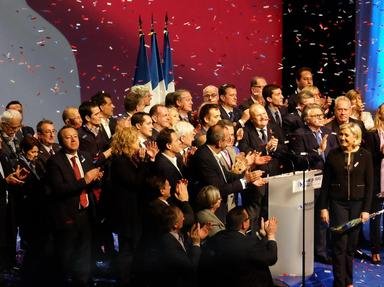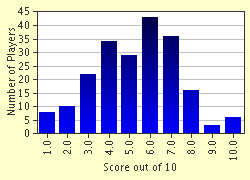Quiz Answer Key and Fun Facts
1. A famous television commercial for this candidate showed a little girl picking daisies, then abruptly cut to a massive nuclear explosion.
2. While it is now a regular part of every presidential campaign for candidates to do the rounds of late night talk shows and comedy variety shows, it was novel in 1968 when this candidate appeared on 'Rowan & Martin's Laugh-In'.
3. Who was the first president to appear on 'Saturday Night Live'?
4. During his campaign for president, Bill Clinton appeared on this television talk show playing saxophone with the band.
5. In 1988, George H. W. Bush aired a controversial campaign ad accusing his opponent, Massachusetts Governor Michael Dukakis, of being soft on crime. Which recidivist criminal was the focus of the commercial?
6. After the first 1960 presidential debate between Richard Nixon and John F. Kennedy, national polls showed that people who saw the debate on television thought that Kennedy had won, while people who heard the debate on radio thought Nixon had won.
7. After the 1960 Kennedy/Nixon debates, when was the next televised presidential debate?
8. Who was the first non-major party candidate to appear in a televised presidential debate?
9. In what year did the first political campaign commercial appear on television?
10. In 1991, former two-time Democratic presidential candidate Jesse Jackson appeared on Saturday Night Live and read this Dr. Seuss book:
Source: Author
sku
This quiz was reviewed by FunTrivia editor
Matve before going online.
Any errors found in FunTrivia content are routinely corrected through our feedback system.


